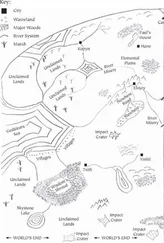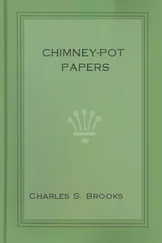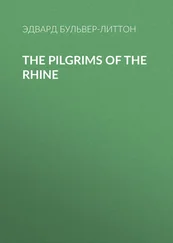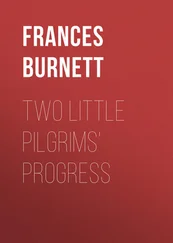Charles Brooks - Hints to Pilgrims
Здесь есть возможность читать онлайн «Charles Brooks - Hints to Pilgrims» — ознакомительный отрывок электронной книги совершенно бесплатно, а после прочтения отрывка купить полную версию. В некоторых случаях можно слушать аудио, скачать через торрент в формате fb2 и присутствует краткое содержание. Жанр: foreign_antique, foreign_prose, на английском языке. Описание произведения, (предисловие) а так же отзывы посетителей доступны на портале библиотеки ЛибКат.
- Название:Hints to Pilgrims
- Автор:
- Жанр:
- Год:неизвестен
- ISBN:нет данных
- Рейтинг книги:3 / 5. Голосов: 1
-
Избранное:Добавить в избранное
- Отзывы:
-
Ваша оценка:
- 60
- 1
- 2
- 3
- 4
- 5
Hints to Pilgrims: краткое содержание, описание и аннотация
Предлагаем к чтению аннотацию, описание, краткое содержание или предисловие (зависит от того, что написал сам автор книги «Hints to Pilgrims»). Если вы не нашли необходимую информацию о книге — напишите в комментариях, мы постараемся отыскать её.
Hints to Pilgrims — читать онлайн ознакомительный отрывок
Ниже представлен текст книги, разбитый по страницам. Система сохранения места последней прочитанной страницы, позволяет с удобством читать онлайн бесплатно книгу «Hints to Pilgrims», без необходимости каждый раз заново искать на чём Вы остановились. Поставьте закладку, и сможете в любой момент перейти на страницу, на которой закончили чтение.
Интервал:
Закладка:
You are welcome at all of our restaurants – our Samovars, the Pig and Whistle, the Three Steps Down (a crowded room, where you spill your soup as you carry it to a table, but a cheap, honest place in which to eat), the Green Witch, the Simple Simon. The food is good at all of these places. Grope your way into a basement – wherever one of our fantastic signs hangs out – or climb broken stairs into a dusty garret – over a contractor's storage of old lumber and bath-tubs – over the litter of the roofs – and you will find artistic folk with flowing ties, spreading their elbows at bare tables with unkept, dripping candles.
Here is youth that is blown hither from distant villages – youth that was misunderstood at home – youth that looks from its poor valley to the heights and follows a flame across the darkness – youth whose eyes are a window on the stars. Here also, alas, are slim white moths about a candle. And here wrinkled children play at life and art.
Here are radicals who plot the reformation of the world. They hope it may come by peaceful means, but if necessary will welcome revolution and machine-guns. They demand free speech, but put to silence any utterance less red than their own.
Here are seething sonneteers, playwrights bulging with rejected manuscript, young women with bobbed hair and with cigarettes lolling limply at their mouths. For a cigarette, I have observed, that hangs loosely from the teeth shows an artistic temperament, just as in business circles a cigar that is tilted up until it warms the nose marks a sharp commercial nature.
But business counts for little with us. Recently, to make a purchase, I ventured of an evening into one of our many small shops of fancy wares. Judge my embarrassment to see that the salesman was entertaining a young lady on his knee. I was too far inside to retreat. Presently the salesman shifted the lady to his other knee and, brushing a lock of her hair off his nose, asked me what I wanted. But I was unwilling to disturb his hospitality. I begged him not to lay down his pleasant burden, but rather to neglect my presence. He thanked me for my courtesy, and made his guest comfortable once more while I fumbled along the shelves. By good luck the price was marked upon my purchase. I laid down the exact change and tip-toed out.
The peddlers of our village, our street musicians, our apple men, belong to us. They may wander now and then to the outside world for a silver tribute, yet they smile at us on their return as at their truest friends. Ice creaks up the street in a little cart and trickles at the cracks. Rags and bottles go by with a familiar, jangling bell. Scissors grinders have a bell, also, with a flat, tinny sound, like a cow that forever jerks its head with flies. But it was only the other day that two fellows went by selling brooms. These were interlopers from a noisier district, and they raised up such a clamor that one would have thought that the Armistice had been signed again. The clatter was so unusual – our own merchants are of quieter voice – that a dozen of us thrust our heads from our windows. Perhaps another German government had fallen. The novelist below me put out his shaggy beard. The girl with the slim legs was craned out of the sill with excitement. My pretty neighbor below, who is immaculate when I meet her on the stairs, was in her mob-cap.
My dear pilgrim from the West, with your ample house and woodshed, your yard with its croquet set and hammock between the wash-poles, you have no notion how we are crowded on the island. Laundry tubs are concealed beneath kitchen tables. Boxes for clothes and linen are ambushed under our beds. Any burglar hiding there would have to snuggle among the moth balls. Sitting-room tables are swept of books for dinner. Bookcases are desks. Desks are beds. Beds are couches. Couches are – bless you! all the furniture is at masquerade. Kitchen chairs turn upside down and become step-ladders. If anything does not serve at least two uses it is a slacker. Beds tumble out of closets. Fire escapes are nurseries. A patch of roof is a pleasant garden. A bathroom becomes a kitchen, with a lid upon the tub for groceries, and the milk cooling below with the cold faucet drawn.
A room's use changes with the clock. That girl who lives opposite, when she is dressed in the morning, puts a Bagdad stripe across her couch. She punches a row of colored pillows against the wall. Her bedroom is now ready for callers. It was only the other day that I read of a new invention by which a single room becomes four rooms simply by pressing a button. This is the manner of the magic. In a corner, let us say, of a rectangular room there is set into the floor a turntable ten feet across. On this are built four compartments, shaped like pieces of pie. In one of these is placed a bath-tub and stand, in another a folding-bed and wardrobe, in a third is a kitchen range and cupboard, and in the fourth a bookcase and piano. Must I explain the mystery? On rising you fold away your bed and spin the circle for your tub. And then in turn your stove appears. At last, when you have whirled your dishes to retirement, the piano comes in sight. It is as easy as spinning the caster for the oil and vinegar. A whirling Susan on the supper table is not more nimble. With this device it is estimated that the population of our snug island can be quadruplicated, and that landlords can double their rents with untroubled conscience. Or, by swinging a fifth piece of pie out of the window, a sleeping-porch could be added. When the morning alarm goes off you have only to spin the disk and dress in comfort beside the radiator. Or you could – but possibilities are countless.
Tom Paine died on Grove Street. O. Henry lived on Irving Place and ate at Allaire's on Third Avenue. The Aquarium was once a fort on an island in the river. Later Lafayette was welcomed there. And Jenny Lind sang there. John Masefield swept out a saloon, it's said, on Sixth Avenue near the Jefferson Market, and, for all I know, his very broom may be still standing behind the door. The Bowery was once a post-road up toward Boston. In the stream that flowed down Maiden Lane, Dutch girls did the family washing. In William Street, not long ago, they were tearing down the house in which Alexander Hamilton lived. These are facts at random.
But Captain Kidd lived at 119 Pearl Street. Dear me, I had thought that he was a creature of a nursery book – one of the pirates whom Sinbad fought. And here on Pearl Street, in our own city, he was arrested and taken to hang in chains in London. A restaurant now stands at 119. A bucket of oyster shells is at the door, and, inside, a clatter of hungry spoons.
But the crowd thickens on these narrow streets. Work is done for the day and tired folk hurry home. Crowds flow into the subway entrances. The streets are flushed, as it were, with people, and the flood drains to the rushing sewers. Now the lights go out one by one. The great buildings, that glistened but a moment since at every window, are now dark cliffs above us in the wintry mist.
It is time, dear pilgrim, to seek your hotel or favorite cabaret.
The Wrigley triplets once more correct by exercise their sluggish livers. The kitten rolls its ball of fiery silk. Times Square flashes with entertainment. It stretches its glittering web across the night.
Dear pilgrim, a last important word! Put money in thy purse!
I Plan a Vacation
ITis my hope, when the snow is off the ground and the ocean has been tamed by breezes from the south, to cross to England. Already I fancy myself seated in the pleasant office of the steamship agent, listening to his gossip of rates and sailings, bending over his colored charts, weighing the merit of cabins. Here is one amidships in a location of greatest ease upon the stomach. Here is one with a forward port that will catch the sharp and wholesome wind from the Atlantic. I trace the giant funnels from deck to deck. My finger follows delightedly the confusing passages. I smell the rubber on the landings and the salty rugs. From on top I hear the wind in the cordage. I view the moon, and I see the mast swinging among the stars.
Читать дальшеИнтервал:
Закладка:
Похожие книги на «Hints to Pilgrims»
Представляем Вашему вниманию похожие книги на «Hints to Pilgrims» списком для выбора. Мы отобрали схожую по названию и смыслу литературу в надежде предоставить читателям больше вариантов отыскать новые, интересные, ещё непрочитанные произведения.
Обсуждение, отзывы о книге «Hints to Pilgrims» и просто собственные мнения читателей. Оставьте ваши комментарии, напишите, что Вы думаете о произведении, его смысле или главных героях. Укажите что конкретно понравилось, а что нет, и почему Вы так считаете.












